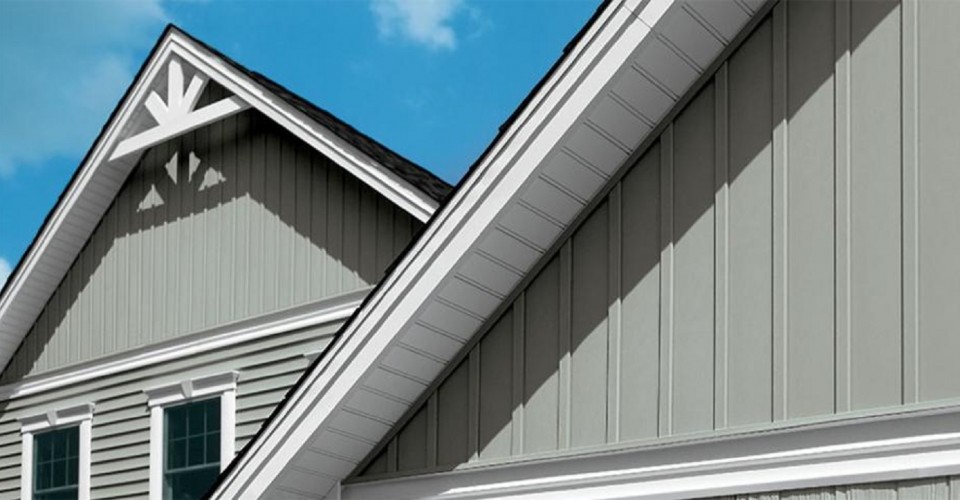Determining how much money to spend, and calculating the right budget for your siding project, is an important decision for homeowners to make. Replacing old, unsightly siding can give your home a real facelift, it can also make your home more competitive in the real estate market. Remodeling Magazine estimates that, depending on whether you go with a basic vinyl, a foam-backed premium variety, or fiber cement siding, the added value to your home could range from just over $8,000 to nearly $11,000. Other benefits include better heating/cooling efficiency, which can result in considerable energy savings.
Your exterior siding protects the interior of your home from the elements and replacing it is not an easy DIY project. It may look simple at first glance, but take a real look at the exterior corners, eaves, soffits, fascia, and around openings like windows and doors. Hire a qualified, experienced siding contractor to ensure the lowest costs (DIY mistakes can be expensive), and the best results. A contractor or siding expert will help you keep your siding project on schedule, while sticking to your budget.
What type of siding should you choose?
There are hundreds of siding materials in a variety of prices, colors, and materials. The most common materials are wood shingles, and vinyl. A good place to get informed is to browse projects on Porch of homes near you and select the style and colors you like. From there, talk to a siding professional to determine which materials might look best on your home and any special considerations to be aware of, like higher installation costs or longer lead times. The type of siding you choose will both impact your budget and the value of your home. Laying out all finances per material will help you estimate the price of each type to better decide what you can and can’t afford.
What can I expect to pay for siding?
The more information you know about the siding and the contractor, the better prepared you are to keep your siding project within budget. Know what to expect so you can assess the siding contractor’s estimate. According to Remodeling Magazine, the cost of replacing 1,250 square feet of basic vinyl siding along with the trim is $11,475. If you decided to go with a premium siding like fiber cement, costs would go up to almost $13,378 and foam-backed vinyl would cost $14,236. The cost of your siding product depends on a lot of factors including:
-
the material you choose
-
the size of your house
- the scope of your project
-
the siding contractor
-
the amount of preparation work (e.g., fixing dry rot or termite damage)
Materials and labor for exterior siding
Siding contractors generally charge by the project, not by the hour, but of course you should verify this with your hired professional. In general, materials account for 50% – 75% of the project cost. More expensive siding materials demand higher costs of labor. You can save on siding contractor costs if you choose to remove the old siding yourself or purchasing the materials yourself. But don’t be surprised if the contractor’s warranty doesn’t allow for this. Generally contractors like to work with certain brands of siding and usually receive the best prices.
Additional fees to consider
There are usually separate fees for removing old siding, hauling it away, and repairing damage to the home. Included in the cost is renting a dumpster and disposing of old materials. When the old siding is removed, there is always the danger that the siding contractor will find structural damage caused by such things as mold, water, or insects. Insulation might also be inadequate and a vapor barrier may need to be applied. When planning your budget it’s important to add some extra room for any additional fees that may need to be added post completion of your project. This will help you stay on track with your desired costs and make sure that if any mishaps or pricey problems were to occur, you will be able to pay for them without going over budget.
Include your budget in a contract
In order to make sure your budget is understood and followed, include all costs in a written and signed contract with your contractor. This will help you and your professional stay on the same page and maintain a firm plan as to how your money will be spent and executed into your siding project. A contract will enable you to legally bind your professional to the written terms and act as a safety net to protect you as the homeowner. Understand siding contract basics before signing an agreement with your contractor to avoid running into legal issues.
Top Image Credit: Loebrich Contracting Inc




